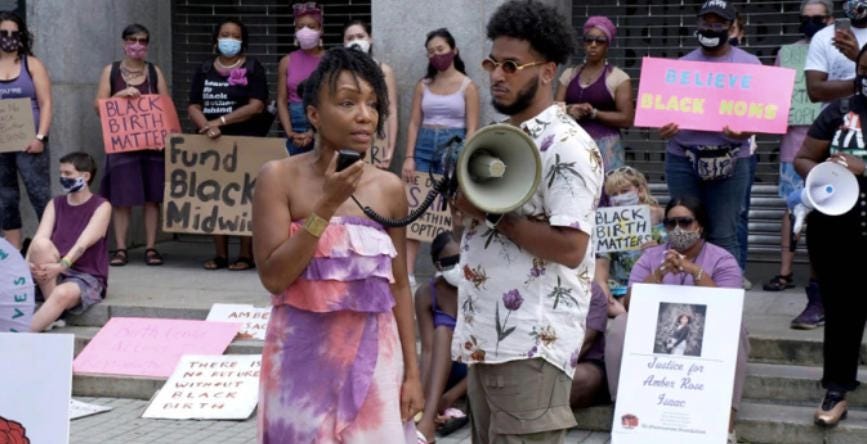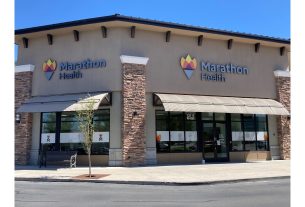[ad_1]
Shawnee Gibson Benton advocates for change in the maternal health care system following the death of … [+]
In October of 2019, 30-year-old Shamony Gibson died just 13 days after the birth of her son.
In April of 2020 26-year-old Amber Rose Isaac died following an emergency caesarian section.
It was later determined that both women died of preventable causes.
The documentary Aftershock follows the bereaved families of both women as they work with activists, healthcare workers, and physicians to understand a tragically overlooked American crisis – the rise in maternal deaths in the United States, particularly among women of color.
Statistics show what Black women are about three times more likely to die from a pregnancy related cause than white women. The maternal mortality rate for black women increased significantly from 2018 to 2020. And Black women today are more likely to die of childhood complications than their parents. 60% of these deaths are preventable.
The film features Omari Maynard, Gibson’s partner, and Issac’s partner, Bruce McIntyre, as the men navigate their role as unexpected single parents. Also highlighted is Gibson’s mother, Shawnee Benton Gibson, who is now an outspoken advocate for maternal health.
NEW YORK, NEW YORK – JULY 14: Bruce McIntyre, Shawnee Benton Gibson and Omari Maynard attend the … [+]
This trio is highlighted throughout the film as they work to understand what happened in their individual situations while they become activists, championing changes in maternal health through legislation, medical accountability, and art. They, along with a group of dedicated of surviving Black fathers, midwives, and maternal health advocates, to bring about systemic change within the medical system.
A shocking but true fact, according to the CDC, is that Black women are three to four times more likely to die than white women with the same symptoms.
NEW YORK, NEW YORK – SEPTEMBER 19: Producer Tonya Lewis Lee attends the premiere of “All Rise” on … [+]
Tonya Lewis Lee, Co-Director and Co-Producer of Aftershock, told CBS Mornings that, “Amber Rose Isaac and Shamony Gibson went looking for help and they were dismissed when they were expressing their symptoms.”
She added, “there is a bias against brown and black people. So, you need to be paying attention to who is dealing with you, how they’re perceiving you, and making sure that you advocate for yourself in the best way possible. In other words, one wrong move and it could cost you your life.”
The film, according to Lewis, came about because, “We needed to put a human face on the women who are dying. We read the statistics, but they’re not numbers. They’re people.”
WASHINGTON, DC – AUGUST 28: Shawnee Benton Gibson speaks during the March on Washington August 28, … [+]
But the documentary highlights hope as well, says Lewis, explaining, “We do show an amazing birth in the film by a woman who really decided [that] she was going to do the regular [birth in a hospital] thing and then made a decision to see what other options are out there for her.”
Lewis says that overall she wants Aftershock to be empowering. “I want women and families to understand there’s choice and you can give birth in many different ways. You don’t necessarily have to do it at a hospital. And, that there are things that we all can do to improve birthing outcomes, and it’s really incumbent upon us to figure out what [those are].”
In the film, McIntyre makes many heartfelt statements, but one in particular stands out as he says, “I can’t let Amber be another statistic. I’m making people aware of what’s going on in these systems. I thought I was going to spend a lifetime with Amber — I wanted to give her my life. This way I’m still going to.”
‘Aftershock’ is now streaming on Hulu.
[ad_2]
Source link



